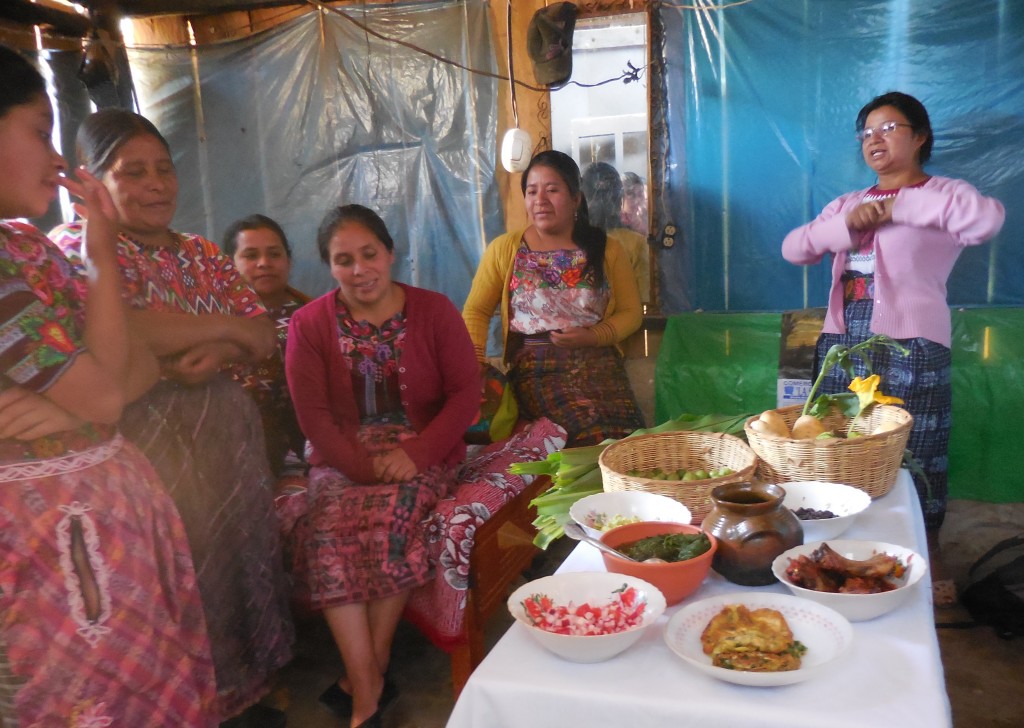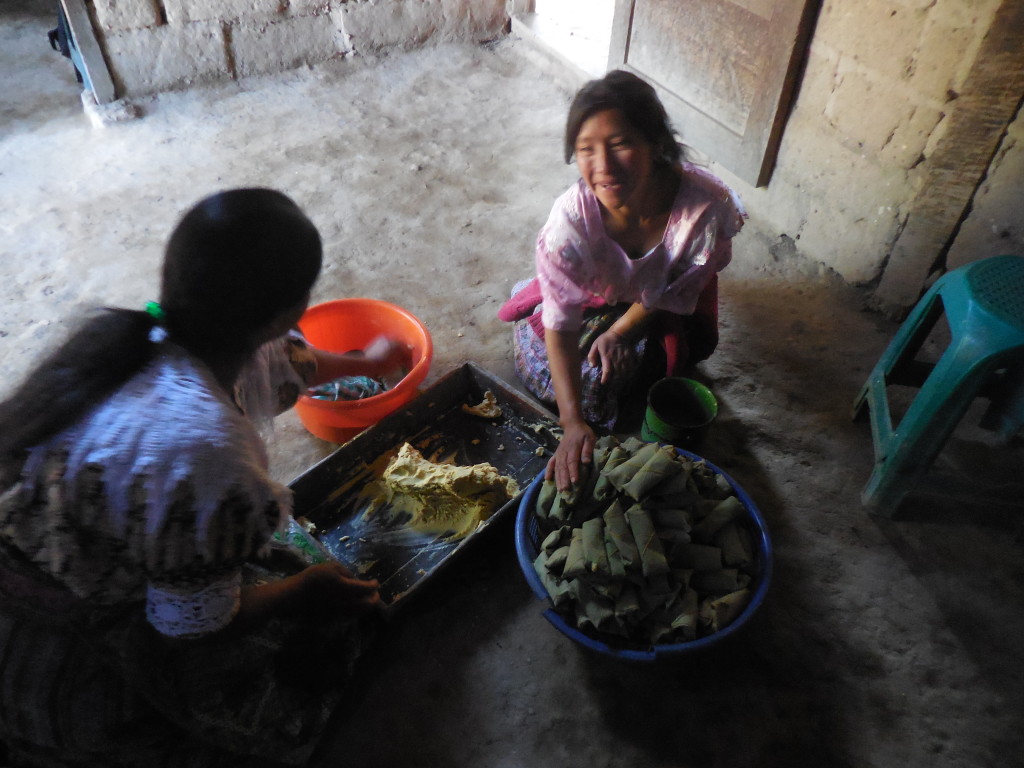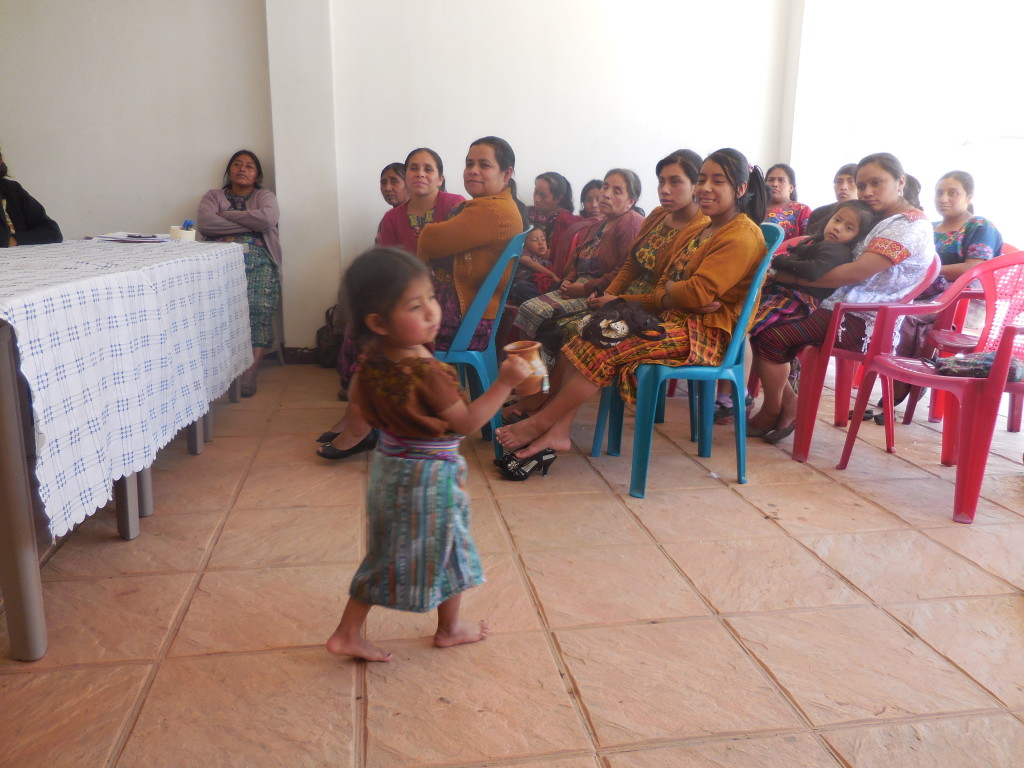Original post by Katherine Zavala, Thousand Currents Regional Director, Latin America on August 21, 2015. This post also appeared on Medium.
Believing in your potential is not easy.
Yet, sometimes it can take just one other person to see it and express it to you, to fuel the fire that already exists in each one of us.
This is one of my lessons from visiting the Ixpiyakok Women’s Association (Asociación de Mujeres ‘Ixpiyakok’, or ADEMI) in the city of Tecpán, in the south central Chimaltenango department in Guatemala this past May.
Together with ADEMI board members and staff, we traveled to the community of Palamá village, where 150 families live an hour away from Tecpán. Fifteen Indigenous women from the community welcomed me, eager to show me their backyard gardens filled with organic crops. They also led me to a small hut where they kept their community seed banks as well as the tools they use to measure and weigh young women, children, and babies to keep track of their health record.
When it came to lunch, the group of women proudly showcased their range of crops, tomatoes, onions, lettuce, squash, local herbs, etc., which they had cultivated and cooked for our visit.

As we sat munching our delicious food, the board members started to chat and share their latest news with each other. ADEMI has seven board members, coming from different Indigenous communities surrounding Tecpán, and five of them had joined my visit.
Humbelina, the board’s treasurer, started sharing about having recently gone to a local council meeting in her community.
“What did you talk about in your meeting?” one of her fellow board members asked.
“Nothing new. About the same projects, wanting to build a new road… again.”
I asked her, “Do you enjoy being on the local council?”
“Not really, all the projects that are being discussed come from men.”
“Are you the only woman on the council?”
“We are two women in a 10-member council,” Humbelina started. She continued to lay out how challenging it is to work with men.
***
ADEMI was established in Santa Apolonia, a municipality in the northern part of Chimaltenango in 1984. In this town, 30 Indigenous Mayan widows who had lost their husbands to Guatemala’s civil war came together to form an organization that could address the need they valued the most: children’s health. Focusing on children’s health, the women set out to ensure children were getting a nutritional diet, which initially started with the idea of educating women in the cultivation of local varieties of fruits and vegetables.
However, this was very challenging during war times because freedom of expression and assembly was under threat. The military army would invade their meetings to check on what these women were doing.
So the women of ADEMI decided they needed to build a relationship with the army to safely continue their meetings. For the following 10 years, they kept their work to very specific, short-term projects that looked more like charity instead of transformational social change.
Once the army’s surveillance waned in 1995, ADEMI was finally able to create long-term strategies of improving women’s livelihoods, starting with their health and their children’s health.
Over the next 20 years, ADEMI build programs for Indigenous women to train and practice agroecology, helping them to build food sovereignty and livelihood alternatives. In addition, ADEMI focused on building women’s economic participation by training women to become active members of savings and credits groups in their community.

Knowing that the state’s support of policies that favored Indigenous women was limited or non-existent, ADEMI next set out to build a political education training program for women to build self-esteem, know their rights, and gain knowledge and the tools to participate politically for local advocacy.
***
But believing in your potential is not easy.
As Humbelina continued to describe the lack of space for the two women on the local council to express any opinions, suddenly, from the back of the room, I hear Leonarda, the board president.
“What are you thinking?” Leonarda asked her, pointedly.
“Don’t you know that you have an incredible unique opportunity? They are not electing any women on our local council, and you are already in that space. So you need take advantage of it. You need to start proposing women’s projects, so that the community can support them.”

Humbelina didn’t respond. She seemed to want to, but decided to opt for silence. Her body suggested to me that she was struggling internally with Leonarda’s words.
“We went to all these political education workshops to prepare us for this moment,” Leonarda continued. “And you are the one that needs to present the changes that we women want in our communities.”
Believing in your potential is not easy… But with the support and encouragement of others, it can get easier.